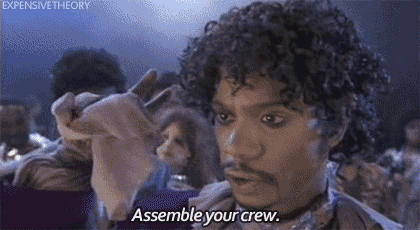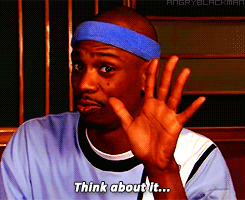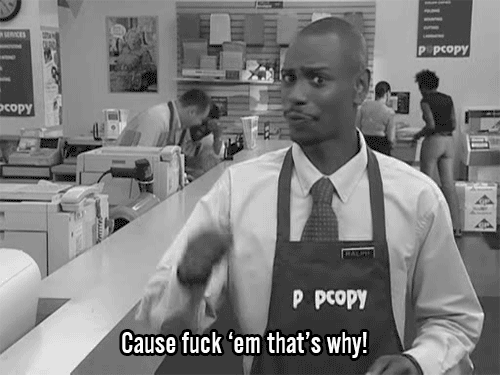I just came across a clip from “Iconoclasts”.
I haven’t seen the whole exchange yet. But in the excerpt I watched, she spoke with Dave Chappelle about commonalities they shared as icons – not the least of which was the creative process and the involvement of others in it.
Maya related to Dave how she would get a hotel room in whatever town she visited, and abscond to the privacy of those foreign four walls in order to write. Once alone, her process began with performing a brief “cleansing”. It helped rid her of the day’s trouble – or even just traffic assholes on the ride over. But once she did that, she could write for about as many hours as the average desk jockey spends playing email ping pong in a cubicle between sitting in traffic. To compare, Dave described the disparity between their creative processes as a “quantum leap” – namely because of the presence of people.

As a sort of comic yardstick, Chappelle said he needed people during joke writing – to see if they laughed or not. This makes sense in the earlier years of a comedian – similar to the whole “don’t judge yourself before 100 gigs” advice inasmuch as it takes practice and feedback. But after a while, you come to trust yourself and your style.
And that’s when it seemed like he realized how they were more alike than different.
Maya proceeded to ask him about his reaction when he’s expecting laughter and doesn’t get it. He paused before replying, “That’s interesting… because when I’m at my best – I’m not looking for it.” As if, when he’s on point it’s because he has confidence in that inner guide that tells us what’ll work optimally and (obviously) spurs all the best creative art.

I tend to think that’s what those personal “cleansing” moments Maya took before writing were about. We need people, for sure, but if we use them as constant barometer for validation – in everyday or professional identity alike – we tend to become parodies of ourselves in our aim for praise.
A little solitude (used wisely) helps us remember what we really want.
And that’s helpful whether setting out to paint a chapel ceiling or just accomplish a regular day we can feel good about after it’s over. Paradoxical as it seems, it helps us remember we’re creating for people – before we try to conjure up gut-splitting comedy or quote-worthy literature. As one of Maya’s most popular quotes goes: “At the end of the day people won’t remember what you said or did, they will remember how you made them feel.”
Yeah, that!

I mean, I can’t remember most of his bits verbatim, but I know Dave’s work leaves people with a sense of levity. Similarly, I had to look up that Maya quote (which I couldn’t recite from memory), but something about her serene manner just puts people at ease. And when Dave turned away from a $50 million deal, dropped the mic, and headed to Africa, it was exactly that – “feeling” – the Hollywood execs left him with that made him about face. From the Oprah and Actor’s Studio interviews I’ve caught with him, it seems like the laughter hadn’t stopped, but it began to feel derisive. That whole “laughing at versus with you” thing takes on a whole different meaning when racial matters are being addressed in comedy.
And an iconic comedian can read the difference.
Our intention is everything. It’s powerful and transparent. We wear it. So if it doesn’t match a person’s verbal message, no amount of money can convince anyone that it does. And it’s not enough to keep someone with a moral compass working against their true north, either. These folk ain’t worth it.

Assuming you’re an unselfish shit-giver, how do you wanna make people feel?